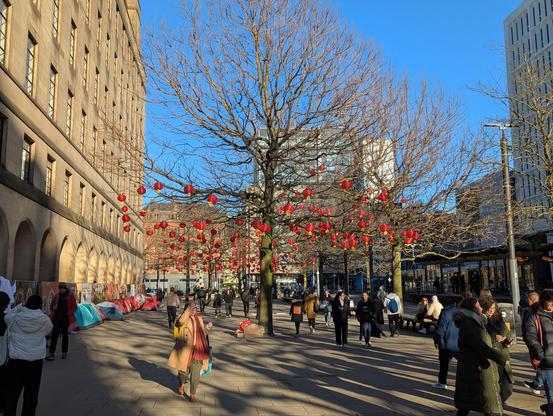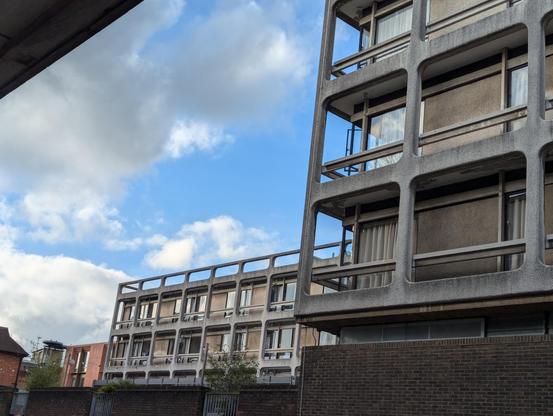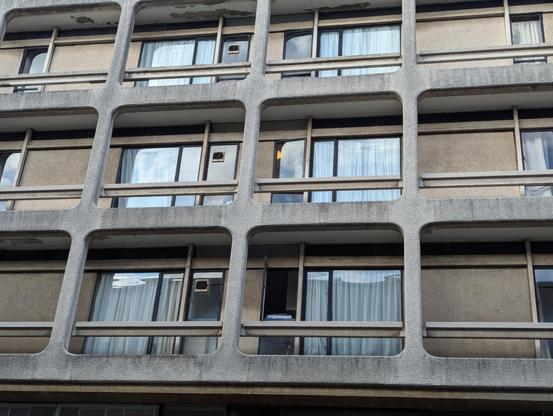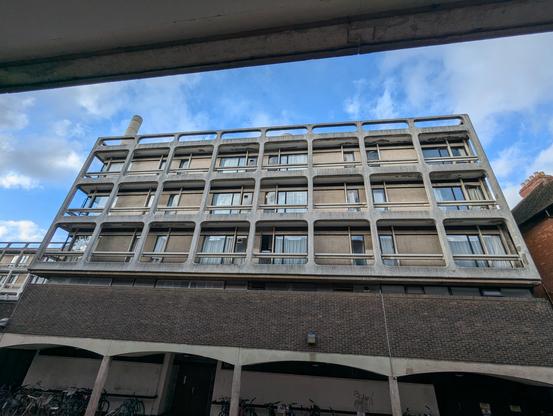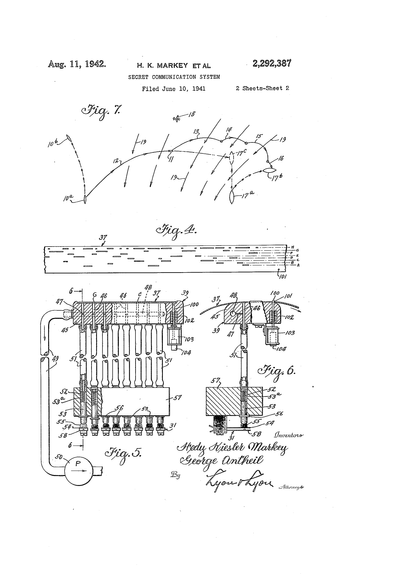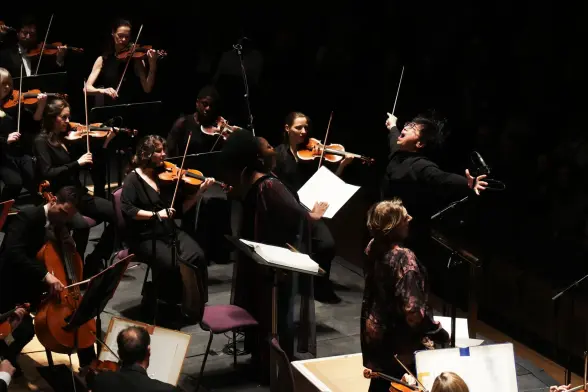The Free Software Foundation drops a new logo in celebration of its upcoming 40th anniversary!
UK based free software advocate, music lover and writer.
Published my second #emacs package today: https://github.com/gavv/transient-compile
transient-compile detects your build tool and shows a #magit -like menu with available build targets.
@tompearce49 great picture! Thanks for sharing.
I was stting quietly by the window when I noticed movement outside. It's not often a buzzard (Buteo buteo) is quite as bold as this. Sadly my camera was a couple of metres away and out of reach, but I had my phone in my hand. That's one more bit of gratitude for today.
The Lost Music of Auschwitz: How a British composer brought hidden Holocaust symphonies to life
https://www.independent.co.uk/arts-entertainment/tv/news/the-lost-music-of-auschwitz-sky-arts-leo-geyer-b2682788.html?utm_source=flipboard&utm_medium=activitypub
Posted into Arts & Entertainment @arts-entertainment-Independent
@praetor@social.sdf.org You are a diamond - thank you!
@praetor@social.sdf.org How? I want it too! :-)
Chinese New Year lanterns in #Manchester UK.
Loving this #brutalism in Oxford, UK.
@jsiehler Mahler 2 or Bruckner 9 are my current go to choices. Both amazing.
Call for papers: Peer Review in the Age of Large Language Models
Looking forward to doing a keynote at this workshop in May 👇
‘Peer Review in the Age of Large Language Models’ is an interdisciplinary workshop taking place on 14th May 2025 at the University of Bath. Dr. Harish Tayyar Madabushi from the University of Bath, and Dr. Mark Carrigan from the University of Manchester, will be giving keynotes. We are inviting you to submit an abstract for the workshop by Friday 14th February 2025, please see details below:
Call for Abstracts
With the emergence of large language models (LLMs), some scholars have begun to experiment with the use of these tools in various academic tasks, including peer review (Hosseini et al., 2023; Wedel et al., 2023; Liang et al., 2024). Recent studies have suggested LLMs could play some legitimate role in peer review processes (Dickinson and Smith, 2023; Kousha and Thelwall, 2024). However, significant concerns have been raised about potential biases; violations of privacy and confidentiality; insufficient robustness and reliability; and the undermining of peer review as an inherently social process.
Despite the relatively large volume of literature on peer review (Bedeian 2004; Batagelj et al., 2017; Tennant and Ross-Hellauer, 2020; Hug, 2022), we still know relatively little about key issues including: the decision-making practices of editors and reviewers; how understandings of the purposes and qualities of peer review vary between journals, disciplines, and individuals; and the measurable impact of peer review in advancing knowledge. Tennant and Ross-Hellauer (2020) suggest there is “a lack of consensus about what peer review is, what it is for and what differentiates a ‘good’ review from a ‘bad’ review, or how to even begin to define review ‘quality’.” Many commentators have also noted the negative effects of time and productivity pressures on the quality and integrity of peer review in practice. LLMs enter into a context of peer review fraught with both ambiguity and (time) scarcity.
Recently, many relevant entities, including the Committee on Publication Ethics (COPE), have published specific guidance on the use of AI tools in decision-making in scholarly publication. These frameworks address issues such as accountability, transparency, and the need for human oversight. The adoption of such guidance raises important questions about whether and how LLM technologies can be used responsibly to promote knowledge production and evaluation. Can these policies and guidelines, for example, fully address the technical limitations of LLMs? Can the use of LLMs ever be compatible with the purposes and qualities of academic research, writing, and authorship? What potential oversight responsibilities should editors have?
The aim of this workshop is to provide an opportunity to collectively and critically explore these possibilities and limitations from various disciplinary vantage points. We welcome scholars from all career stages, particularly doctoral researchers and early career academics. We welcome contributions on a wide range of topics, from across all disciplines, related to the use of LLMs in the peer review process. Topics may include, but are not limited to:
- Empirical studies examining the nature and extent of LLM adoption and
use in peer review; - Studies examining variations in disciplinary orientations towards LLMs
in peer review; - Theoretical discussions of the limits and compatibility of LLMs as tools
in peer review; - Papers considering LLMs in peer review from the perspective of social
epistemology; - Papers considering LLMs in peer review from the perspective of Science
and Technology Studies (STS); - Critical reflections on the ethics of LLM adoption and use in peer review;
- Papers engaging with the politics and political economy of LLM use in
peer review; - Sociotechnical evaluations of LLM systems used for peer review;
- Value-sensitive design of peer review LLM tools;
- Methods for audit and assurance of LLM in peer review;
- Proposals for development of policies and standards for ethical and
responsible use of LLMs in peer review;
Selected authors will be invited to present on a panel at the workshop. Each panel will have a chair (who will introduce the panel and lead the audience Q&A), and a discussant (who will ask questions, having read papers in advance). Following the acceptance of their abstracts, participants will then be asked to send draft papers no later than three weeks before the workshop to give the panel discussants enough time to prepare questions and feedback. Draft workshop papers should be approximately 5,000 words. We do not expect papers to be in final, publishable format. The aim of the workshop is to provide constructive and timely feedback on draft papers. Following the workshop, and in consultation with participants, the organisers will consider the most suitable options for future collaboration (e.g., a network, a Special Issue, or an edited volume).
A travel stipend is available to support participants who do not have access to funding to support conference attendance through their own institutions. If you wish to apply for this stipend, please state this on your application and indicate where you would be travelling from. Unfortunately, we cannot cover the costs of major international travel.
Please submit your title, abstract (200-300 words) and a short bio (~150 words) to ai-in-peer-review@bath.ac.uk by Friday 14th February 2025. The organising committee will communicate decisions by Friday 7th March 2025. Workshop papers (approx. 5,000 words) should be sent by Wednesday 23rd April 2025.
Manchester/Salford Critical Ed Tech Network Event, February 19th 12pm-2pm
Dear colleagues,
I hope this finds you well. I’m reaching out to invite you to an informal lunchtime gathering where we can share our thoughts and concerns about educational technology and its impacts.
This is part of an exciting international initiative happening that week, with similar discussions taking place in cities around the world: https://criticaledtech.com/2024/07/26/cset-2025-critical-studies-of-education-and-technology-an-invitation-to-connect/ [criticaledtech.com]
We’ll be hosting Manchester’s contribution:
Date: Wednesday, February 19th, 2025 Time: 12:00 – 14:00 Venue: Humanities Bridgeford Street Building, University of Manchester
The format is deliberately informal – we’re inviting colleagues to give brief 5-minute contributions on any of these themes:
- What concerns you about EdTech in our current context?
- What social harms are you observing?
- How do you see the political economy of EdTech playing out locally?
- Where do you see hope for positive change?
No slides needed – just come ready to share your thoughts and meet others interested in these issues. This is very much about building connections across Manchester and Salford institutions and finding potential collaborators.
Your insights will contribute to an international open-access report, and there’s potential for involvement in a UK-wide meeting planned for June in Oxford/London.
If you’d like to contribute a 5-minute talk, just let me know which theme you’d like to address. You’re also very welcome to come and join the discussion even if you don’t want to speak. Lunch will be provided.
Please get in touch by January 31st to confirm your talk or just register to attend on the day.
ContactLook forward to seeing some of you in February.
Mark Carrigan (UoM) and Mar Borràs (MMU)
#CriticalEducationalTechnology #edtech #educationalTechnology #manchester #salford
Wales 2025: The Land Without Music. Musicians are putting their homes on the market while Welsh National Opera shrinks daily and St Davids Hall, the NATIONAL concert hall of Wales, sits empty and derelict https://slippedisc.com/2025/01/wales-2025-the-land-without-music/ #music #Brexit #Musicians
Even though I've been using #emacs for a very long time, I have been an #orgmode newbie all this time, only using it in bits and pieces (outlining, some TODOs management etc.) and not very well. I've been resisting the urge to use some other shiny tools that I have seen others using. So I am thankful to Protesilaos for his recent post on org mode TODOs and agenda — https://protesilaos.com/codelog/2025-01-16-emacs-org-todo-agenda-basics/. I highly recommend it to anyone who is interested in learning about the topic.
Austrian-born American actress and inventor Hedy Lamarr died #OTD in 2000.
Lamarr wanted to aid the Allied forces during World War II. She shared her concept for using “frequency hopping” with the U.S. Navy and codeveloped a patent with Antheil 1941. Today, her innovation helped make possible a wide range of wireless communications technologies, including Wi-Fi, GPS, and Bluetooth.
Below, U.S. patent 2,292,387 granted on August 11, 1942, under her legal name Hedy Kiesler Markey.
I was fortunate enough to be in the audience on Thursday night in Manchester for Wong's Mahler 2 with the Halle. It was incredible; an experience I will carry with me for the rest of my life. #mahler #classical #manchester #bridgewaterhall

